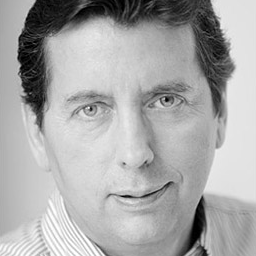First Step to a Job: A Well-written Cover Letter and Resumé
In another era, before personal computers and email, when I was just out of school, letters and resumés were different. When you were competing with the herds of graduates looking for creative jobs you needed to have an outstanding, nonconformist approach. I chose a blue rag stationery that reflected my character. I wasted lots of that expensive paper because I typed the letter repeatedly until it fit the page and was free of mistakes. The process often took hours.
The resumé was even worse. I recall struggling to get the blocks of experience on my curriculum vitae to fit on a page. The ink was uneven. Because of my heavy hand on my manual typewriter, the dots on my i’s looked like pinholes on the page.
I’ve lived a great life in Vancouver largely because of my bold approach to a resumé. Back in 1977, I had drawn my self-portrait on the cover of Broadcastermagazine and had written my name into all the article teasers. A daring first page of my resumé. Page two showed I was slim on actual TV work experience.
Within a week of mailing my resumé and letter to CKVU’s president Daryl Duke, I received a long distance phone call and was told how creative my resumé and writing was. I was hired sight unseen.
Later in my career, working as a TV producer, I received many creative resumés from people wanting to break into the business. One wannabe production assistant sent a Styrofoam egg container to me with his name and contact information on the lid. Inside each of the dozen egg shells was a slip of paper with a reason why the candidate should be hired. Creative. I didn’t throw it out for weeks, but his reasons weren’t enough for me to call him for an interview.
At Peak Communicators, I receive about 100 resumés and cover letters a year. Almost all arrive by email. So right away the factors of the quality of paper, texture, lumps of whiteout and lots of creativity are eliminated from the equation. With personal computers, resumés all look similar today. The text is uniform, the borders straight and as a result, what the candidate has to say is accentuated. There are few distractions.
I dismiss about 25 per cent of candidates because of the typos and bad grammar they display. Many get our company name wrong. We are not “Peak Communications.” It’s Peak Communicators.
At our PR agency we look for people who have at least one university degree. They have to be presentable, speak well, tell a story and think. We don’t settle for less. If they can’t write effectively, it is doubtful we’ll meet.
Last month I read a three-paragraph cover letter that stopped me in my tracks. It was written by a PR student whom I knew nothing about. She wrote with a refreshing and unconventional clarity. It was like she was sitting at the other side of my desk talking to me about her life and goals. The same unconstrained voice was in her resumé.
When a letter and resumé are that strong, you are seldom disappointed when you meet the person. She aced her interview too.
Emily Kiloh is the talented winner of Peak’s PR Scholarship for spring 2014. She starts her internship with us on June 2.

